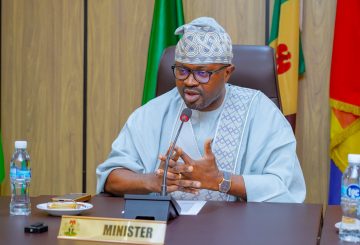The International Monetary Fund (IMF) has reported that the Nigerian naira is showing signs of stabilisation, largely due to recent interest rate increases and measures taken by the Central Bank of Nigeria (CBN) to address foreign exchange backlogs. This update was highlighted in the IMF’s latest Global Financial Stability Report, where the fund emphasized the CBN’s efforts to clear overdue foreign exchange obligations, which have significantly contributed to the currency’s improved stability. The report acknowledged that local policy actions, particularly the rate hikes and interventions, were key factors in stabilising the naira.
Despite this progress, data from the FMDQ Exchange revealed a slight decline in the naira’s value, dropping from N1,653.02 per dollar on October 22, 2024, to N1,654.09 per dollar on October 23, marking a marginal depreciation of 0.06 per cent. Additionally, foreign exchange turnover experienced a sharp decrease of 22.41 per cent, falling from $176.15 million on Tuesday to $136.68 million on Wednesday. While these figures reflect ongoing challenges, the IMF’s assessment underscores the Nigerian government’s continuing efforts to stabilise the foreign exchange market and enhance liquidity.
However, the World Bank’s latest Africa’s Pulse report painted a less optimistic picture of the naira’s performance. As of August 2024, the naira had depreciated by 43 per cent year-to-date, making it one of the weakest currencies in Sub-Saharan Africa, alongside the Ethiopian birr and South Sudanese pound. The World Bank attributed the naira’s significant depreciation to a combination of factors, including rising demand for US dollars in the parallel market, limited dollar inflows, and delays in foreign exchange disbursements by the CBN.
This depreciation persists despite some reforms implemented by the Nigerian government, such as the liberalisation of the official exchange rate initiated in June 2023. The World Bank also pointed out that financial institutions, non-financial users, and money managers driving up demand for US dollars have further strained the naira. While the Nigerian authorities continue their efforts to balance the foreign exchange market, the naira remains under pressure.





